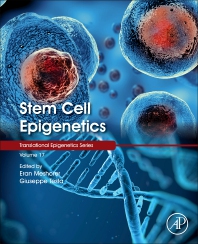Books in Life sciences
Books in Life sciences
Elsevier's Life Sciences collection helps researchers get comprehensive coverage and up-to-date information on the study of living organisms, their processes, and interrelationships, spanning disciplines like biology, genetics, and biochemistry, and addressing emerging trends such as genomics, biotechnology, and sustainability, essential for advancing knowledge and driving innovation in the field.
- 1st Edition
- February 7, 2020
- Laurence A. Cole + 1 more
- English
- Paperback9 7 8 0 1 2 8 2 0 0 5 0 6
- eBook9 7 8 0 1 2 8 2 1 6 0 9 5

100 Years of Human Chorionic Gonadotropin
- 1st Edition
- October 28, 2020
- Khalid Z. Masoodi + 2 more
- English
- Paperback9 7 8 0 1 2 8 2 4 4 4 9 4
- eBook9 7 8 0 1 2 8 2 4 4 5 0 0

Advanced Methods in Molecular Biology and Biotechnology
- 1st Edition
- November 12, 2020
- Shweta Pandey + 2 more
- English
- Paperback9 7 8 0 1 2 8 2 2 0 0 7 8
- eBook9 7 8 0 1 2 8 2 2 0 0 8 5

Protocols in Biochemistry and Clinical Biochemistry
- 1st Edition
- Volume 9
- June 29, 2020
- Maie A. St. John + 1 more
- English
- Hardback9 7 8 0 1 2 8 2 0 6 7 9 9
- eBook9 7 8 0 1 2 8 2 0 9 2 9 5

Novel Therapies in Head and Neck Cancer: Beyond the Horizon
- 1st Edition
- Volume 17
- August 5, 2020
- English
- Hardback9 7 8 0 1 2 8 1 4 0 8 5 7
- eBook9 7 8 0 1 2 8 1 4 0 8 6 4

Stem Cell Epigenetics
- 1st Edition
- September 12, 2020
- Ligong Lu + 4 more
- English
- Hardback9 7 8 0 1 2 8 1 9 4 0 2 7
- eBook9 7 8 0 1 2 8 1 9 4 0 3 4

Integrative Pancreatic Intervention Therapy
- 1st Edition
- April 28, 2020
- Marni J. Falk
- English
- Paperback9 7 8 0 1 2 8 2 0 0 2 9 2
- eBook9 7 8 0 1 2 8 2 0 0 3 0 8

Mitochondrial Disease Genes Compendium
- 1st Edition
- February 21, 2020
- English
- Paperback9 7 8 0 1 2 8 1 6 6 6 4 2
- eBook9 7 8 0 1 2 8 1 7 2 8 2 7

Microbiomics
- 1st Edition
- November 25, 2020
- Tin Thein Thwel + 1 more
- English
- Paperback9 7 8 0 1 2 8 2 3 3 9 5 5
- eBook9 7 8 0 1 2 8 2 3 6 3 3 8

Data Deduplication Approaches
- 1st Edition
- June 8, 2020
- Herbert Levine + 3 more
- English
- Paperback9 7 8 0 1 2 8 1 7 9 9 6 3
- eBook9 7 8 0 1 2 8 1 7 9 9 7 0

Phenotypic Switching